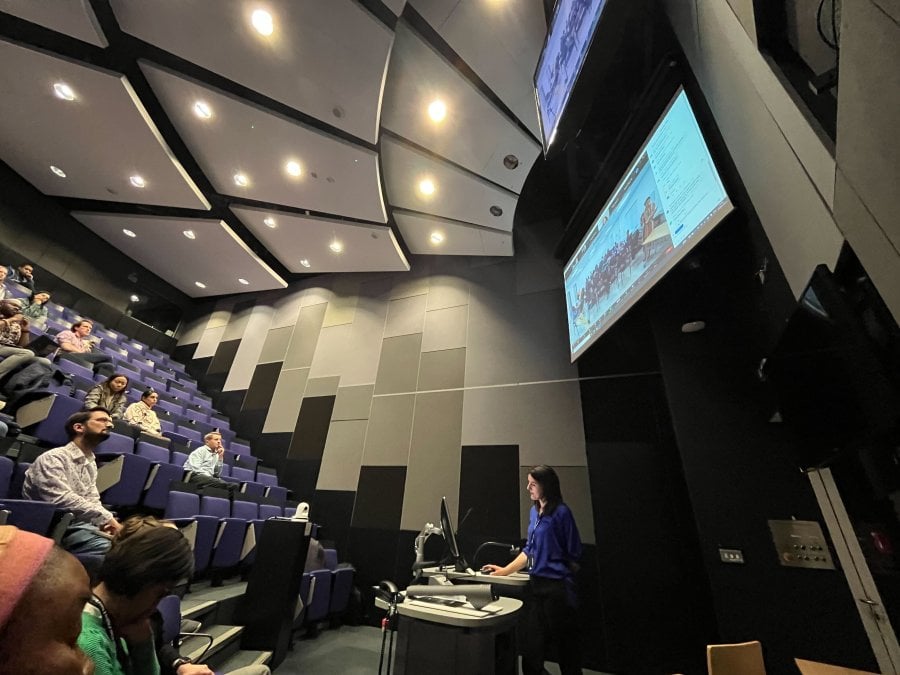
| What AMR-related data do you wish you had, that would help you to make better decisions? | What are the barriers to better data collection and understanding of AMR?
| What changes and initiatives do you hope to see in terms of data collection and at what level should they happen (local / national / international) over the next 5 years? |
From the collection of responses, five themes emerged that emphasised both the importance of better data collection and tools needed, but also the power of local access and use of AMR data. We highlighted each of these themes as threads on X (formerly Twitter) over the week, as well as discussing them at our AMR Centre Seminar on Thursday (available to watch back here).
The first theme was “linking microbiology and patient data”. Many of our experts emphasized that without this data we cannot know what is “clinically significant”: when does AMR really matter for patient outcomes and, of all the variables we need or might measure when starting antibiotic treatment, which are most important for driving clinical outcomes as well as resistance development.
Our second theme focused specifically on what is needed from AMR data “in the hospital environment” where the acute AMR problem manifests, highlighting the need to decide on how to prioritise interventions in resource limited settings. There was also emphasis on needing data on pathogen variation – what are patients carrying asymptomatically when they arrive in hospital, how does this affect treatment outcomes and how might different pathogen variants transmit differently. As well as an emphasis on the need to think about pathogens other than bacteria in the AMR space.
Linked to theme one, knowing the bug-drug populations being carried by a patient is key to treatment outcomes as well as interpretation of intervention impact. This point about the importance of colonization and mode of transmission was carried into our third theme: “outside the hospital”. Here our experts emphasized how data surveillance, of both AMR and antibiotic use in community and environmental settings was sparse and needed future work to unify surveillance systems. This would be key to understanding the impact of interventions such as WASH on AMR as well as vaccines.
Building on the unified surveillance comment, our fourth theme was “Data sharing to inform decision making” with experts emphasizing the need for global and timely measures of AMR. This should be done by following FAIR (findable, accessible, interoperable, reusable) and CARE (collective benefit, authority to control, responsibility and ethics) principles with multiple experts emphasizing the need for data to be shared and used to empower local collectors and users of data.
Our final theme focused on “How do we get there? Tools, infrastructure and training needs”. Many experts emphasized the need for harmonization across settings and at all levels, with the need for locally trained individuals as well as open access software and IT infrastructure to enable data sharing. All of this must be done in partnership with local data collectors, with increased sampling and investment in infrastructure to support them interpreting their own AMR data.
From our five themes, our experts pointed to isolated good quality studies but many more had concerns about knowledge gaps (for example in the community), emphasized what could be done following the COVID-19 lead (for example in understanding pathogen variants and global spread) and emphasized the infrastructure changes that need to happen within the AMR field.
Many thanks to all our experts who contributed to these interesting discussions and watch this space for an extended workshop based on this input on AMR data in Autumn 2024.
Our postgraduate taught courses provide health practitioners, clinicians, policy-makers, scientists and recent graduates with a world-class qualification in public and global health.
If you are coming to LSHTM to study a distance learning programme (PG Cert, PG Dip, MSc or individual modules) starting in 2024, you may be eligible for a 5% discount on your tuition fees.
These fee reduction schemes are available for a limited time only.
